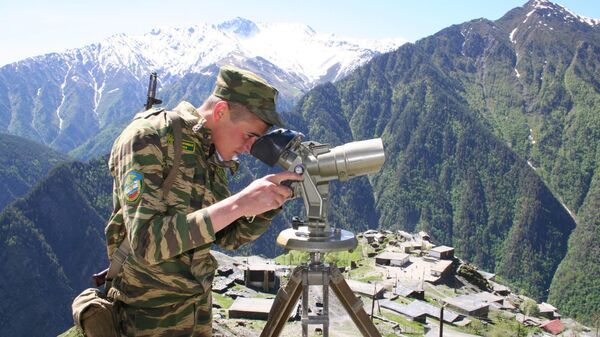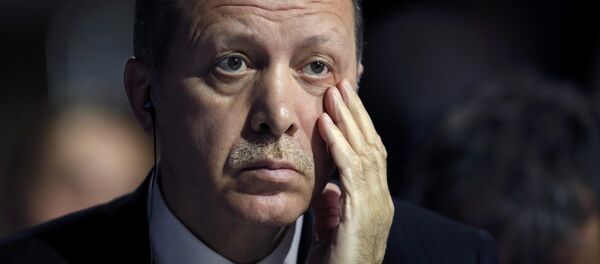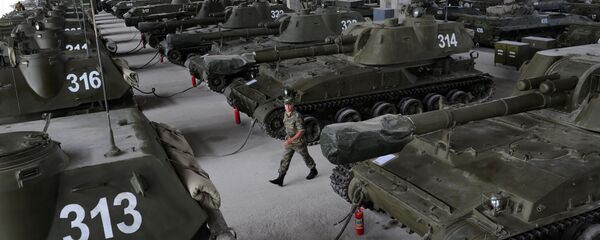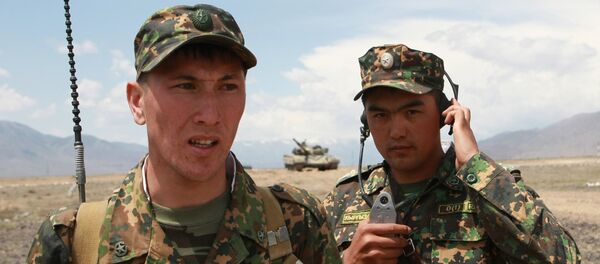In his analysis, published in respected business magazine Expert, Mirzayan starts off by suggesting that to a large extent, Russia's ability to maintain stability across this 'southern arc' will depend on finalizing its chosen vector of relations with Turkey.
"Of course, the optimum vector would be for the normalization and stabilization of relations, even if strategic partnership is now out of the question. Nevertheless, good-neighborly relations, the development of economic ties and a certain level of cooperation in the Caucasus and in the direction of Europe are still possible to recover."
"The problem," Mirzayan suggests, "is that interfering with this vector is Turkish leaders' inability to simply apologize for the downed Su-24. Ankara realized long ago that it has committed not just a mistake, but a crime against its own national interests by shooting down the plane, but Recep Tayyip Erdogan's pride prevents him from apologizing."
"However," the analyst continues, "if a policy of cooperation will not be possible, a clear course of confrontation aimed at weakening Ankara to the maximum extent possible would also make Russia's life easier. At the minimum, the Kremlin is developing its strategy to remove Ankara's influence in several regions which are of key interest to Russia – the Caucasus and Central Asia, and will be looking to implement it without regard for any hopes about a renewed partnership with Ankara. By all appearances, the indicator of the strategy will be Russia's bid on the development of close relations with the Kurds –both Turkish and Syrian."
In the Caucasus, Mirzayan notes, there are two possible sources of instability: the frozen Armenian-Azerbaijani conflict and the future of Russian-Georgian relations.
"On the first issue, a significant role might be played by Turkey and Turkish interests. It's no secret that Moscow is doing all it can to avoid the 'unfreezing' of the Armenian-Azerbaijani conflict over the Nagorno-Karabakh region. With this in mind, it is a) negotiating with Baku and Yerevan, and b) attempting to develop measures to deescalate the situation."
If before, "the Turkish government worked not only not to inflame the Karabakh conflict, but on the contrary, attempted to freeze it and even to normalize relations with Armenia, for the sake of cooperation with Russia," now, Ankara "could push Baku toward escalation. Of course, this would be a bluff, and would cause serious problems for Erdogan with his European partners, but it could encourage the Azerbaijani president to cross certain red lines, thus turning a serious problem for Moscow."
"After all, this is not just an issue of an attempt to improve relations with a small country with a population smaller than the city of St. Petersburg. It is about setting a possible precedent in forming an effective modus vivendi with a country of the former Soviet Union which has chosen the Euro-Atlantic course."
Finally, according to the analyst, "the most important link among the 'southern arc of instability' is, of course, Central Asia. Yes, today there are no open conflicts requiring an immediate solution (as in the case of Turkey), but the region faces internal processes of erosion," which threaten to give birth to political crises, "complicated by the general socio-economic problems there. Here, the Kremlin will have to deal with two processes at the same time: to freeze the crisis, and to create new foundations for statehood. The task, to put it mildly, is not an easy one."
And "the policy of conservation," the analyst warns, "could lead to revolutions, possibly of an Islamist character, given the realities of the region." Ultimately, Moscow, for its part, "will have to engage in stimulating the evolution of Central Asian governments, something which in itself risks complicating relations with them." The Kremlin, Mirzayan hopes, will be morally and politically prepared to take the necessary measures.







